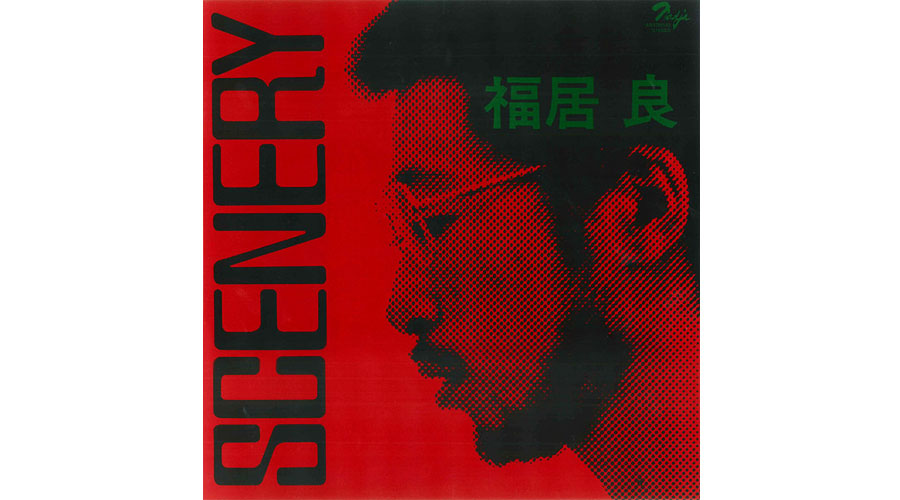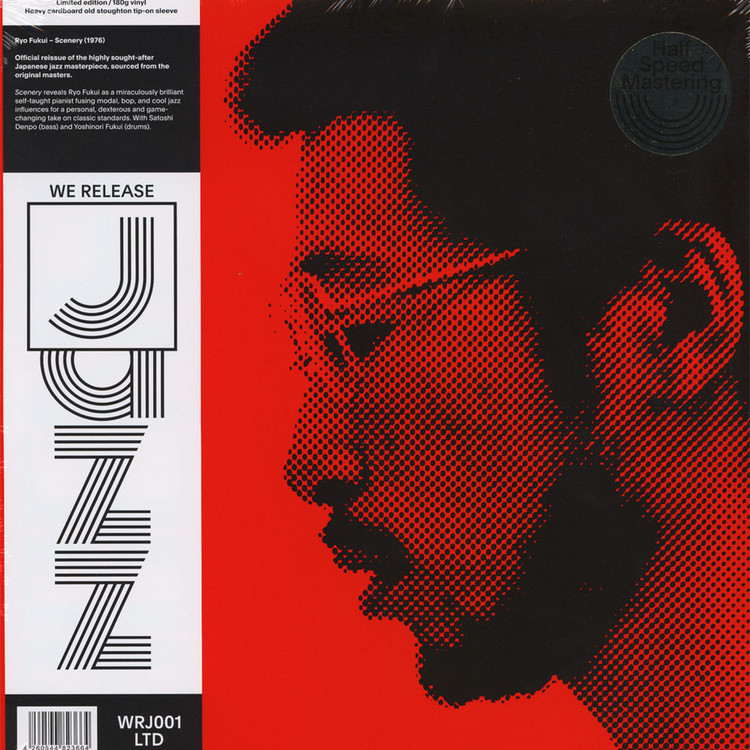


He borrowed elements of post-bop, cool jazz, and even blues to create something unique, something unheard of before: a jazz album that prioritized composition rather than improvisation. While other artists were busy getting to know the textures of music, self-taught pianist Ryo, accompanied by a drummer and a bass player, decided to give his own spin on American jazz.
#RYO FUKUI SCENERY HOW TO#
The problem with the newborn experimental style of music at the time, however, was that it didn't show how to truly embrace jazz as an art form.īecause of Jap-Jazz’s confused identity, one the genre’s most important albums was Ryo Fukui’s Scenery. As a matter of fact, he and a few others started the now-signature avant-garde Japanese movement, which would explain why so much experimental music comes out of the country.

Artists like Miles Davis were already pushing the sound of fusion in the early 70s while Magical Power Mako started doing so later in the decade with a more dissonant, bare style. The main difference was Jap-Jazz wasn't as developed as American jazz. After a few decades, it evolved like it did in the West with slight differences. The genre arrived to the nation due to WWII when American forces stationed in Japan brought and introduced said music from overseas. Japanese jazz, casually known as Jap-Jazz, has had a very interesting history. It's a shame that the bulk of the album is dedicated to the less interesting and much more derivative approach.Review Summary: Oh, how lovely is the scenery. The exception is "Early Summer" where Fukui proves he is at least capable of playing interesting music. In many ways, Fukui sounds like a student, content to imitate Bill Evans or Red Garland, but without adding any new color to give the music character or fully understanding the more subtle aspects of these players' styles. Overall the album is very average, with Fukui demonstrating competency in jazz piano, but little in the way of personality or a developed style of his own. It's a simple progression that fits Fukui's style well, though the trio seems to struggle somewhat with the slow tempo and the rhythm section puts very little variation or imagination into their accompaniment of Fukui's solo. "Scenery" closes the album with another original composition. Yoshinori in particular is at fault here, often ending each four or eight bar phrase with obvious and/or very basic fills. Once again, the rhythm section does little to add any drama or interesting development to the tunes. There is one thing that Fukui does very well, which is the repeating hemiola, though he uses this technique so often that it becomes predictable and tiresome. The 'B' Side finds Fukui taking a bluesier approach, first on "Willow Weep for Me," then on another jam-session-y version of "Autumn Leaves." Fukui blueses up the tunes, but still often lacks any sense of nuance in phrasing or overall shape of his solos. He also takes advantage of the harmonic simplicity of the tune and seems to be channeling McCoy Tyner more than Evans, with some nice quartal playing that gets fairly harmonically adventurous at times. Here Fukui finally shows some melodic creativity with long, chromatic phrases and some effective crossrhythms. A funky modal vamp defines the melody and the beginning of Fukui's solo, though it gets quite a bit more interesting when the trio shifts into a double-time swing. The real high point of the album is Fukui's original "Early Summer" which finally deviates from the simple jam session approach and relaxed mood of the rest of the tracks. "I Want to Talk About You" is fairly similar but with a more relaxed, ballad approach. Denpo and Yoshinori Fukui swing along fairly well, though they also do little to encourage any interesting obfuscation of the form, giving the tune the feeling of a jam session. Instead, Fukui tends toward short, diatonic phrases, that seldom move outside the natural phrasing of the tune. His style of left hand comping and bouncy swing feel seem directly influenced by Evans, however Fukui often lacks the chromatic, lyrical melodic drive and adroit phrasing that makes Evans' playing such a joy to listen to. It's obvious from the first track, "It Could Happen to You," that Fukui draws a lot of influence from Bill Evans. It's a simple piano trio setup with Fukui accompanied by bassist Satoshi Denpo and drummer Yoshinori Fukui. "Scenery" is the debut album, and one of the few recordings made by Japanese pianist Ryo Fukui. A mostly average trio release, demonstrating competency, but little creativity or nuance


 0 kommentar(er)
0 kommentar(er)
